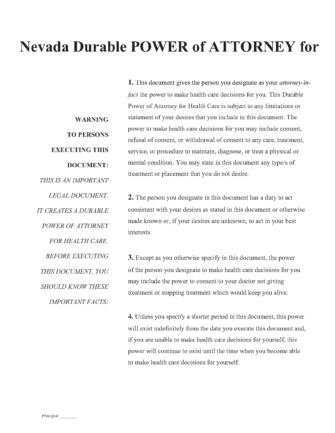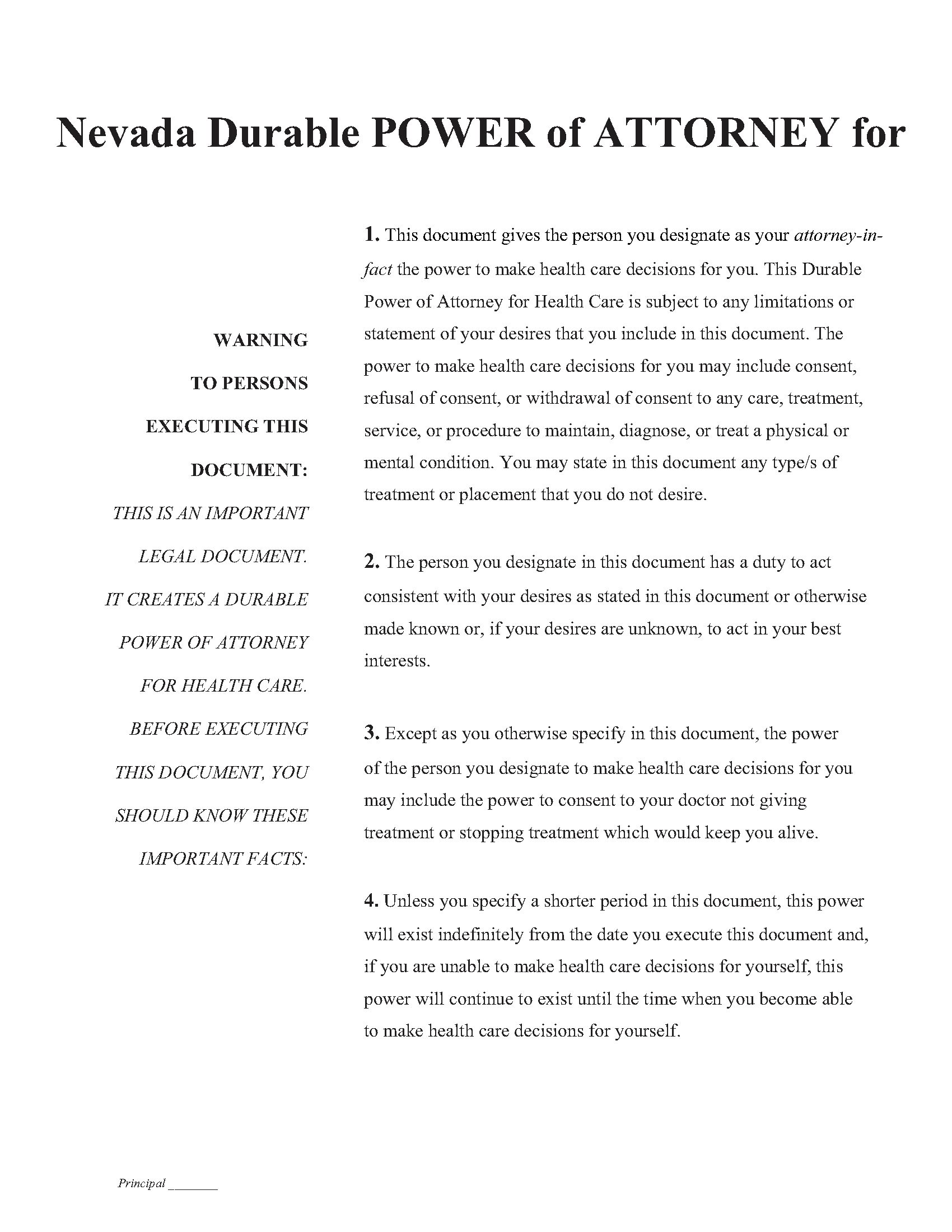Signing Requirements
A medical power of attorney must be signed by the principal and acknowledged before a notary public or witnessed by two individuals who know the principal personally.[1]
Neither of the witnesses can be one of the following parties[2]:
- A healthcare provider or an employee of a provider
- An operator or employee of a healthcare facility
- The principal’s attorney-in-fact
At least one of the witnesses must meet the following requirements[3]:
- The witness cannot be related to the principal by blood, marriage, or adoption; and
- The witness is not entitled to any portion of the principal’s estate upon their death.
Power of Attorney (Preview)
Legal Definition
“Representative of the patient” means a legal guardian of the patient, a person designated by the patient to make decisions governing the withholding or withdrawal of life-sustaining treatment pursuant to NRS 449A.433 or a person given power of attorney to make decisions concerning health care for the patient pursuant to NRS 162A.700 to 162A.870 inclusive.[4]
Revocation
The principal has the right to revoke the appointment of their health care attorney-in-fact at any time orally or in writing.[5]

